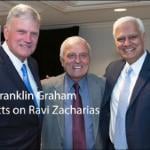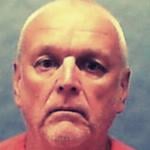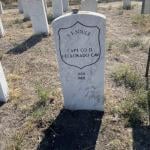 I moved my family from Connecticut to Nashville exactly one year ago. It wasn’t long after we arrived in the “buckle of the Bible belt” that I began to meet Jesus followers who I call the “Christian diaspora.”
I moved my family from Connecticut to Nashville exactly one year ago. It wasn’t long after we arrived in the “buckle of the Bible belt” that I began to meet Jesus followers who I call the “Christian diaspora.”
The word diaspora is derived from a Greek word meaning “a scattering of seeds.” It refers to the migration of a people away from their homeland who yearn to one-day return to it. (I found this material on Wikipedia. I made it better. Now it is inerrant and infallible.)
This tribe of Christians I keep meeting constitute a diaspora in the sense that they have left the homeland of the institutional church because they are disillusioned, burnt out, wounded, cynical, or just tired of being fed biblical teaching that is the equivalent of empty calories. Just go to a coffee shop or park on Sunday morning. Trust me, you’ll meet them.
In another sense the term diaspora doesn’t work for these folks as I’ve not spoken to one of them who are nostalgic to return to the church. They say leaving it was the best thing that ever happened to their relationship with God. They’d rather die than go back.
Let me tell you about James. A mutual friend from CT suggested we meet so I called and we got together at the Starbucks in downtown Franklin, TN. He told me early in the conversation that he didn’t go to church anymore and there were dropouts like him all over Nashville.
“We’re ‘legion’,” he said laughing.
“Why’d you leave?” I asked.
“The church I went to was a theological ghetto. The only thoughts and opinions we heard were our own and woe to you if you questioned them. One day I began asking hard questions about the Bible and the way we were living out our faith. I began to read Thomas Merton and Richard Rohr and the freshness of their insights began to breathe life back into my spirit. I went to my pastor and he warned me they were dangerous teachers and I should read the authors found on the suggested reading list on the church’s webpage.
“Then what happened?” I asked.
“One Sunday after listening to a sermon I’d heard a thousand times before, I walked out of church and never went back,” he said. “I miss the sense of community and shared mission but something miraculous would have to change before I went back there,” my friend said, pushing his chair back and putting his coat on.
“I’ve got to pick my kid up,” he said. “Let’s hang again, OK?”
“Sure. I’ll call you,” I said.
Nearly a year later I sat at the same table where this conversation had taken place. I stared through the window at the church across the street and acknowledged that I’m a divided soul.
I have had one foot in the canoe of the Christian diaspora for a long, long time. I’ve suffered violence at the hands of the church. I’ve had a faith community batter my soul and break my heart so badly that I didn’t sleep for a year. I’ve seen pastors abuse power and congregations act like cannibals cranked on meth. I’m fed up reading about Christian leaders who in the name of defending their gospel commit acts of theological thuggery on those whose understanding of God differs from their own.
My other foot however is on the rickety dock of the church where from time to time I see Jesus in the jaundiced eyes of an old man holding the altar rail with one hand to steady himself and holding forth the other to receive the Eucharist. We both know it may be his last meal and the kind of nourishment he’ll need to make the short walk from this life into God. Its moments like this I can’t get at Starbucks or at a park on Sunday morning.
The other day I came across a description of what I think the church will have to become if the diaspora is to come home. It comes from Catholic theologian Fr Gerhard Lohfink’s book, Does God Need the Church?”
“It can only be that God begins in a small way, at one single place in the world. There must be a place, visible, tangible, where the salvation of the world can begin: that is, where the world becomes what it is supposed to be according to God’s plan. Beginning at that place, the new thing can spread abroad, but not through persuasion, not through indoctrination, not through violence. Everyone must have the opportunity to come and see. All must have the chance to behold and test this new thing. Then, if they want to, they can allow themselves to be drawn into the history of salvation that God is creating. Only in that way can their freedom be preserved. What drives them to the new thing cannot be force, not even moral pressure, but only the fascination of a world that is changed.”
If I were starting a church again I’d have that paragraph framed and put up everywhere, even over the urinals. I’d make memorizing it a condition of leadership, and every now and then I’d have the congregation read it together during worship. If what is described in Lohfink’s description of Christian community were lived out by a few churches it would make the journey home so much easier for the diaspora who have left and it would inspire those like me who have remained with one eye on the door.
—————————————————————————————-
Ian Morgan Cron is a writer, speaker, and Episcopal priest. Thomas Nelson released his critically acclaimed book “Jesus, My Father, the CIA and Me: A Memoir…of Sorts” on June 7th. It is a featured title in the Barnes & Noble Discover Great New Writers program. Follow him on Twitter, Facebook or visit his website: www.iancron.com











